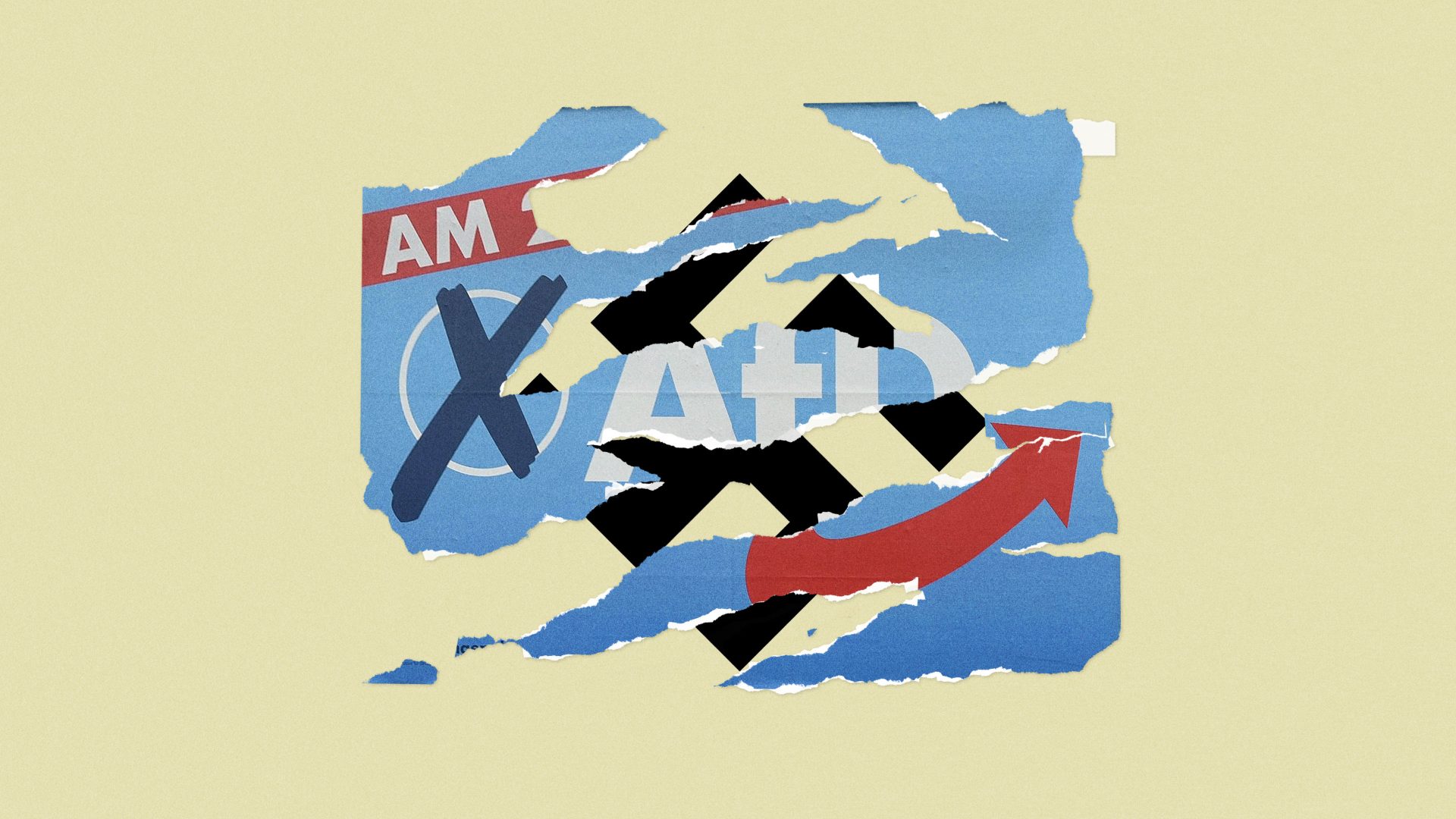As predicted last week, the far right Alternative für Deutschland Party has won an election for the key local government post of Landrat (head of district authority) for the first time, in a run-off in Sonneberg, Thuringia. But that’s not all. Last Sunday, they also claimed their first elected German mayor (in Raguhn-Jeßnitz, 8,000 inhabitants, never heard of it before).
This development marks AfD’s first foray into the executive branch, and we have seen in other parts of Europe (the UK included) what happens once populism starts to rule – as in, to actually rule. I should add that AfD is based on authoritarian national-radicalism, so calling them populist is doing them a favour. As does the understated term Protestpartei when describing the party and its electorate.
The guy who can for ever claim to be the AfD’s first elected mayor is Hannes Loth, 42, an agronomist who clinched 51% of the poll. Just 200 votes made the difference. The opposing candidate, without a party affiliation, got 48%, and complained that his defeat was also down to Loth’s ubiquity in the media (there were many stories introducing Loth with “This could be AfD’s first mayor”).
Media coverage showed Loth engaging with citizens on the town square, slicing blue-iced AfD cake with the party’s top dogs and giving moderately phrased TV interviews about the importance of local issues. If you look at the carefully designed quote cards on his social media profile, however, you get a clearer picture of what local means to him: “Only one in 10 Ukrainians works”; “Ukrainians must decide: a car or social welfare”; “Ukraine demands €500m per month from us. Wir sind nicht das Weltsozialamt (we aren’t the global social services department).”
Winning local elections is part of AfD’s new strategy of normalisation: after years of putting their opposition status at the centre of campaigning, they now actively seek responsibility. And one cannot deny the symbolism of being handed over a town hall. It’s worse than symbolic, though. Given that a new mayor can rely on an established, functional operation, it would be naive to expect a complete fuck-up once AfD enters office.
Judging by their steady 20% in the polls – surpassing the ruling SPD – this strategy is proving more successful than AfD corporate communications in the recent past: praising the state of the German army in 1942, tweeting beefcake shots of Erwin Rommel, belittling the Holocaust, re-inserting the tabooed term Lebensraum into public discourse, warning about a refugee takeover and calling Claus von Stauffenberg a traitor because of his thwarted 1944 coup against Hitler. Make no mistake: AfD staff haven’t changed, they are just better at shushing up their Nazi caboodle.
Since the local elections, the blame-gamers have outdone themselves. Depending on where they stand, AfD success is either the government’s fault for forcing climate-friendly heating systems on homeowners, and for allowing an influx of migrants, causing xenophobia. Or, alternatively, it’s the Christian Democrats’ fault, because a) since Merkel they have made conservatives homeless, and b), because they are too conservative. It is also the far left’s fault, as they are on the verge of splitting up, thus driving people to AfD.
Incriminating literally everyone else on the political spectrum of course only helps to bolster AfD’s claim to be an anti-establishment party.
Who is never to blame, as commentators stress time and again, is the electorate. Ja, the party is extremist, but not the voters – they are merely disenchanted, tactical, lesson-teaching citizens. That may have been the case years ago, when even AfD voters didn’t want AfD to wield actual power. But as the local elections show, it isn’t about protest any more. And yet, political parties continue to legitimise AfD votes by reinforcing their pseudo-logic of sticking up two fingers to the Greens, SPD, CDU, FDP, Linkspartei or the universe.
It is far more detrimental. This voting pattern could turn next year’s state elections in east Germany into a complete nightmare. Particularly in Thuringia and Saxony, where AfD regularly performs strongly and may come first in 2024. To then keep AfD out of government, the other parties, journalists etc. could try to pressure CDU to form a coalition with the far left (they may be the only two parties with a combined majority), to form an all-party-coalition or to tolerate a far-left prime minister – options that are all as life-threatening for the CDU as cooperating with AfD would be.
But this, obviously, is one of the meta-discussions that no AfD voter cares about. German chaos is in the making; watch it come.




